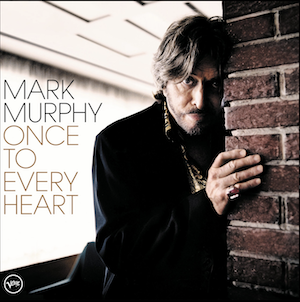Related Research Articles

Melissa Manchester is an American singer, songwriter and actress. Since the 1970s, her songs have been played by adult contemporary radio stations. She has also appeared on television, in films, and on stage.
The 24th Annual Grammy Awards were held on February 24, 1982, at the Shrine Auditorium in Los Angeles, and were broadcast live on American television. The event recognized the accomplishments of musicians during the year 1981. Quincy Jones was the major recipient of awards with a total of five Grammys.

Robert Peapo "Peabo" Bryson is an American singer and songwriter. He is known for singing soul ballads including the hit singles "Tonight, I Celebrate My Love", "You're Looking Like Love To Me" and "As Long As There's Christmas" with Roberta Flack, "A Whole New World" with Regina Belle, and "Beauty and the Beast" with Canadian singer Celine Dion. Bryson has contributed to two Disney animated feature soundtracks. Bryson is a winner of two Grammy Awards.

James Edward Ingram was an American singer, songwriter and record producer. He was a two-time Grammy Award-winner and a two-time Academy Award nominee for Best Original Song. After beginning his career in 1973, Ingram charted eight top 40 hits on the U.S. Billboard Hot 100 chart from the early 1980s until the early 1990s, as well as thirteen top 40 hits on the Hot R&B/Hip-Hop Songs chart. In addition, he charted 20 hits on the Adult Contemporary chart. He had two number-one singles on the Hot 100: the first, a duet with fellow R&B artist Patti Austin, 1982's "Baby, Come to Me" topped the U.S. pop chart in 1983; "I Don't Have the Heart", which became his second number-one in 1990 was his only number-one as a solo artist.

Billie Jo Spears was an American country music singer. She was known for a series of singles whose characters often represented women in assertive positions. Among these recordings was a song about sexual harassment, and a song about rekindling sexual desire ".

Lead Me On is the eighth studio album by Christian music singer-songwriter Amy Grant, released in 1988 through A&M Recordings.

"Piece of My Heart" is a romantic soul song written by Jerry Ragovoy and Bert Berns, originally recorded by Erma Franklin in 1967. Franklin's single peaked in December 1967 at number 10 on the Billboard Hot Rhythm & Blues Singles chart in the United States.

Vulnerable is the third posthumous album by Marvin Gaye. Recorded in sessions throughout 1977, the album was a decade in the making, first being worked on in 1968 during sessions in New York with Bobby Scott. Reworked by Gaye a decade later, the album was originally going to be released in 1979 under the title, The Ballads, but was shelved. Two decades later, Motown released it under the title Vulnerable, including seven songs from the sessions and three alternate cuts.
Beaches: Original Soundtrack Recording is the soundtrack to the Academy Award-nominated 1988 film starring Bette Midler and Barbara Hershey. Midler performs most of the tracks on the album, released on the Atlantic Records label. The album also reunited her with producer Arif Mardin. It features one of Midler's best-known songs, the ballad "Wind Beneath My Wings", which was a number-one hit.

Coltrane for Lovers is a compilation album of recordings by American jazz saxophonist-composer John Coltrane, released posthumously on January 23, 2001, by Impulse! and Verve Records. The 11 tracks compiled for the album are all romantic ballads from Coltrane's early years with Impulse!, being recorded during December 1961 to April 1963 at engineer Rudy Van Gelder's recording studio in Englewood Cliffs, New Jersey. Dominated by Coltrane's classic quartet, the sessions also included collaborations with vocalist Johnny Hartman and pianist Duke Ellington.

Billie Keith Hughes was an American singer, recording artist, songwriter, musician, and record producer. He is best known for his successful artist career in Japan, lead vocalist of his band Lazarus and his collaboration with Roxanne Seeman writing songs for Philip Bailey, Phil Collins, Bette Midler, The Jacksons, The Sisters Of Mercy, Wink, and for his songs in film and television. He has two Emmy nominations.

"Walking on the Chinese Wall" is a song by American singer Philip Bailey released as the title track and third single from his 1984 studio album Chinese Wall produced by Phil Collins. The song features Collins on drums and background vocals and was later released by Collins on his 2018 Plays Well with Others box set. Written by Roxanne Seeman and Billie Hughes, it is an ode to the mystical and mercurial nature of life and love, inspired by Dream of the Red Chamber, Chinese philosophy and the I Ching.

Melissa Manchester is the eighth album by singer-songwriter Melissa Manchester, released in October 1979 on Arista Records.

"You Should Hear How She Talks About You" is a song that was first recorded by Charlie Dore for her 1981 Listen! album. "You Should Hear How She Talks About You" was written by Dean Pitchford and Tom Snow.

"Night and Day" is a 1991 song by Bette Midler written by Roxanne Seeman and Billie Hughes. It is the second single from Some People's Lives produced by Arif Mardin with Marc Shaiman as associate producer. "Night and Day" was arranged by Arif Mardin, Billie Hughes, and Joe Mardin. Jack Joseph Puig was the recording and mix engineer. "Night and Day" was also released as a single in Japan.

"Shifftee" is a song by American hip hop group Onyx. It was released on August 30, 1993 by JMJ Records, Rush Associated Labels and Chaos Recordings as the third single from Onyx's debut album, Bacdafucup. The song was about being grimy and having that echo into a myriad of life situations.
"If You'd Only Believe" is an inspirational pop song written by Roxanne Seeman, Billie Hughes, and Jermaine Jackson. It was produced by Michael Omartian, with The Jacksons as co-producer, on their 2300 Jackson Street album.

"Come Out and Play" is a song by American singer-songwriter Billie Eilish. It was released for digital download and streaming as a single on November 20, 2018, through Darkroom and Interscope Records. Eilish wrote the song with its producer, her brother Finneas O'Connell. A lullaby-influenced midtempo pop ballad, Eilish's lyrics within the song address several topics, including her attempting to beg a friend to no longer hide away. The song was released alongside a festive commercial for technology company Apple, for which it is used as the soundtrack. Eilish included the song in the Japanese edition of her debut When We All Fall Asleep, Where Do We Go? (2019).

If My Heart Had Wings is an album by the American musician Melissa Manchester, released in 1995. It was a commercial disappointment.

Once to Every Heart is a 2005 studio album by Mark Murphy.
References
- ↑ "The Gavin Report" (PDF). World Radio History. July 26, 1985.
- ↑ "Billboard Singles Picks "Heart of Love"" (PDF). americanradiohistory.com. July 7, 1975.
- ↑ "AFI|Catalog". catalog.afi.com. Retrieved 2020-05-26.
- ↑ "A/C adds" (PDF). Gavin Report. August 9, 1985.
- ↑ "A/C Adds: Rocky Mountain" (PDF). The Gavin Report. August 16, 1985.
- ↑ "A/C Adds: Central" (PDF). The Gavin Report. August 23, 1985.
- ↑ "A/C Adds" (PDF). The Gavin Report. August 2, 1985.
- ↑ Weiss, Shelly (March 23, 1991). "Music Publishing, You Can't Keep A Good Song Down Dept" (PDF). americanradiohistory.com.
- ↑ Heart of Love - Melissa Manchester | Song Info | AllMusic , retrieved 2020-05-26
- ↑ If My Heart Had Wings - Melissa Manchester | Songs, Reviews, Credits | AllMusic , retrieved 2021-06-02